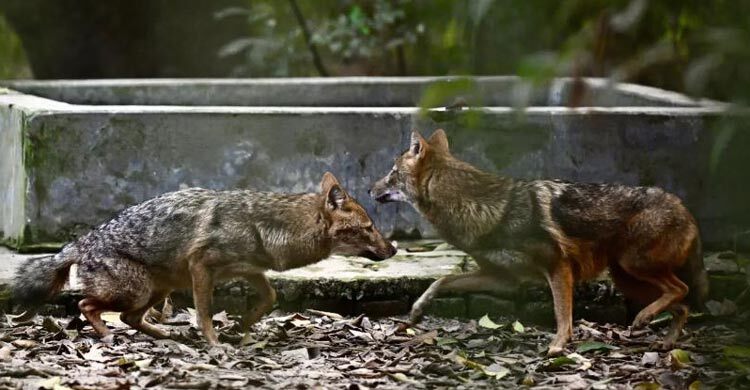Dangerous encounter: Rising jackal attacks linked to shrinking habitats

The Jahan family's remote village in Bangladesh had never seen a jackal up close—until the day one attacked four-year-old Musqan in a paddy field, leaving her permanently maimed.
Violent and unprovoked attacks by rabid jackals are on the rise across Bangladesh, driven by rampant deforestation and habitat loss—trends exacerbated by climate change, experts warn.
Musqan is still recovering from the traumatic mauling, which left her face disfigured and one eye swollen shut. Though she avoided rabies thanks to prompt medical intervention, her aunt Ishrat Jahan described the ordeal as horrifying:
"It happened in broad daylight," she told AFP. "A jackal pushed her to the ground and bit her relentlessly. Villagers killed it afterward, but the trauma lingers."
Jackals display unnatural behaviours
Golden jackals, slender, wolf-like creatures common across Bangladesh, are typically nocturnal and shy. However, their behavior is changing due to habitat loss.
Zoheb Mahmud, an animal researcher at Independent University in Dhaka, has studied jackals for eight years. "The gradual erosion of their habitats has altered their behaviour," he told AFP. "They now venture out during the day and are bolder around humans."
Urban expansion and logging have encroached on jackal habitats. According to Global Forest Watch, Bangladesh lost 17,800 hectares (44,000 acres) of forest in 2023 alone—an area three times the size of Manhattan.
"Jackal attacks on humans won’t stop unless habitat destruction is addressed," Mahmud warned.
Climate change adds pressure
Bangladesh, ranked among the countries most vulnerable to climate change, has seen worsening extreme weather events that further displace wildlife.
In September, widespread flooding uprooted millions of people and drove jackals from their forest homes. "The floods left the jackals without food or shelter," said Obaidul Islam, a jackal bite victim from Nilphamari. "More than a dozen people in our village were bitten."
Rakibul Hasan Mukul, executive director of wildlife group Arannayk, noted that climate change is intensifying floods, eroding farmlands, and forcing people to cut down forests for survival.
"The loss of habitat has heightened conflicts between humans and wildlife," Mukul said. "Deforestation near wetlands and homesteads has left small mammals like jackals in crisis."
Alarming spike in jackal attacks
Hospitals across Bangladesh have reported an alarming surge in jackal bite cases this year. In September, Munshiganj District Hospital treated 20 bite victims in a single day.
"I’ve never seen so many cases in one day," hospital superintendent Dewan Nizam Uddin Ahmed told AFP.
Dinajpur Hospital, on the opposite side of the country, saw 12 cases in a single day. "Jackals are roaming freely through farmlands," said superintendent Mohammad Fazlur Rahman.
Golden jackals typically avoid humans but become aggressive when infected with rabies, a deadly disease that spreads rapidly among canine species through bites.
Urgent need for prevention
Rabies is nearly always fatal in humans once symptoms appear, making immediate treatment critical. After being bitten, Musqan underwent three days of rabies prevention treatment and a month of surgeries for her injuries.
"We can prevent rabies with vaccines," said Dr. Ariful Bashar, one of Musqan’s treating physicians. "But jackal bites often cause severe tissue damage, requiring reconstructive surgery."
As climate change, deforestation, and urbanization continue to disrupt ecosystems, experts warn that Bangladesh must urgently address habitat preservation and rabies prevention to stem the rise in jackal attacks.
Source: AFP

